This op-ed was originally published by Project Syndicate.
I was having lunch in an Ithaca restaurant with my mother-in-law, who was visiting from India, when the Chinese waitress serving us asked her where she came from. “Kolhapur,” my mother-in-law replied, referring to the small town in Maharashtra where she was born. Much to my surprise, the waitress looked overjoyed. “I lived there for several years,” she said.
They hit it off. My mother-in-law said that the world’s best ice cream comes from there, and the waitress agreed that she had never had better since she left. After a while, I realized what was happening: my mother-in-law was talking about Kolhapur, and the waitress about Kuala Lumpur. But all their facts matched perfectly, so I decided not to spoil their joy.
Language is a strange thing. It is an enabler of human progress and happiness (including through amusing misunderstandings like the one in Ithaca), but it can also be a source of conflict and an instrument of oppression.
The connection between language and conflict is not as far removed from the social sciences, including game theory, as many think. By exploring this important link more closely, economists and other researchers could perform a great service by helping us understand the contemporary world.
After all, we live in the best and worst of times. The world has never been as rich as it is today. Yet it is coming apart at the seams, amid increasing political polarization, great-power rivalry, and xenophobia.
Today’s mix of rising prosperity and deepening divisions is reminiscent of the Industrial Revolution that began in the mid-18th century and lasted nearly a hundred years. Unsurprisingly, that era coincided with major theoretical breakthroughs in political economy, from Adam Smith’s The “Wealth of Nations” in 1776, to the contributions of Augustin Cournot and Léon Walras. Theirs were not everyday research findings. Like the later seminal work of John Hicks, Paul Samuelson, and Kenneth Arrow in the 20th century, they produced deep insights that provided sudden, blinding clarity about how the economy works, and how politics interacts with markets and economic well-being.
Although we cannot predict the path of future political-economy research, past experience suggests it will be in multiple directions. Language is likely to be one of them. Some scholars have already provided critical insights into the political economy of language, such as Princeton University’s Stephen Morris on political correctness. But there is much more to be done, particularly on the connection between language and conflict.
Signs of this link are evident in the United States, where, earlier this month, President Donald Trump made statements which seem patently racist. He said that four nonwhite Democratic congresswomen should “go back” to the countries they came from—even though three were born in the U.S. and the fourth is a naturalized citizen who arrived as a child refugee. And yet Trump’s appeals to white identity appear to have cost him few supporters. I do not believe all his supporters are racists. The generous interpretation is that they use language differently from Trump’s critics.
Because what a speaker means and what a listener hears can be very different, language can be an instrument to foment trouble. Much of the problem stems from the fact that the real world is extremely varied and granular, whereas language is coarse by comparison. Some political leaders seek to exploit this to control and subjugate the population.
George Orwell’s “1984” describes a team of bureaucrats working on the 11th edition of the Newspeak Dictionary to “cut language down to the bone.” As Orwell puts it, one of them “bit hungrily into his bread,” and said, “It’s a beautiful thing, the destruction of words.”
If, for example, people regard the words “socialism” and “communism” as synonymous, rather than describing different systems of political economy, then it can become impossible to talk about the former without stoking fears of the latter. Similarly, a right-wing group in Israel can silence dissent by promoting the view that criticism of the group is equivalent to anti-Semitism (or self-hatred, in the case of Jewish critics). This would prompt many people who would hate to be anti-Semitic to avoid criticizing the group.
In India, some groups label anyone espousing ideas to the left of the extreme right as an “urban Naxal,” referring to a violent revolutionary group with which few want to be associated. In a similar vein, the Indian columnist Mrinal Pande has highlighted how the use of modern Hindi to promote a chauvinist culture and totalitarian ideas creates division, and also damages the reputation of the language itself.
Digital technology and the continued growth of social media are increasing the scope for conflict and political mischief by bringing together large numbers of people from different cultural and political backgrounds. For many of them, the same word may have a different emotional or political valence, and the same sequence of words may be interpreted in different—even contradictory—ways.
As words acquire new meanings, many people stop using certain words in order not to be seen as sitting on the fence. As the fence shifts, this becomes a dynamic process producing increasingly polarized societies. Understanding these dynamics will require a combination of logic, equilibrium analysis, philosophy, and creativity.
The world is changing as rapidly as it did during the late 18th and early 19th centuries, if not more so. It is time for economists to venture out in novel directions, as their illustrious predecessors did.

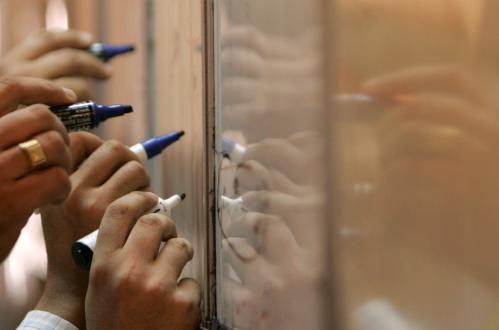
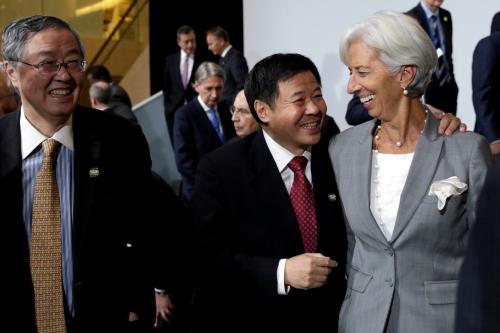
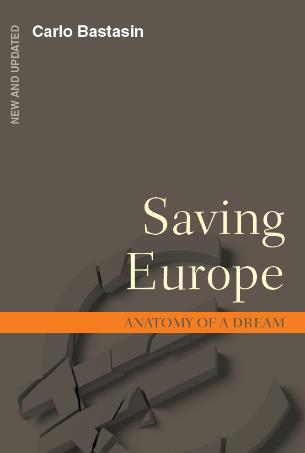
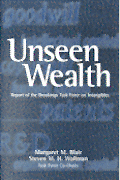

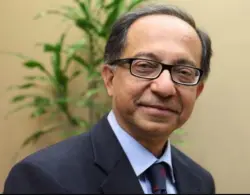



Commentary
Op-edThe language of conflict
July 24, 2019